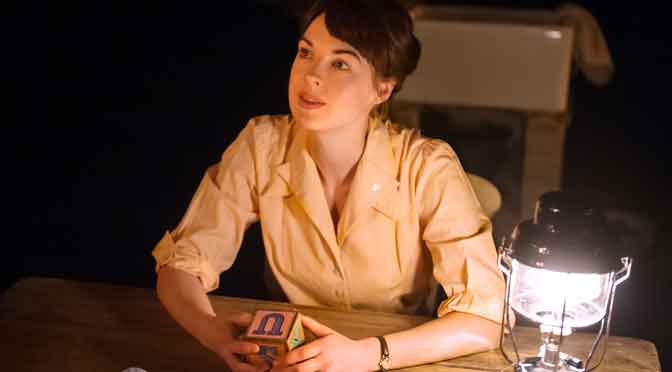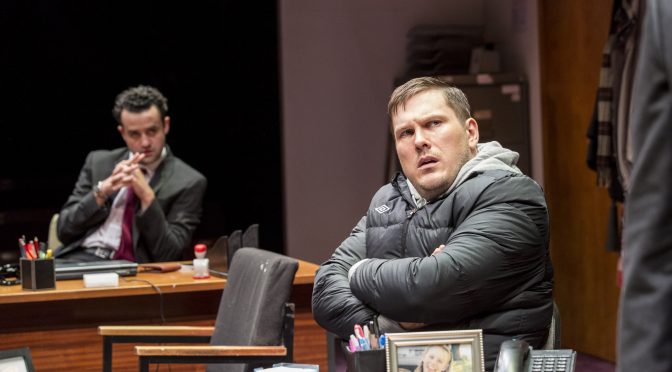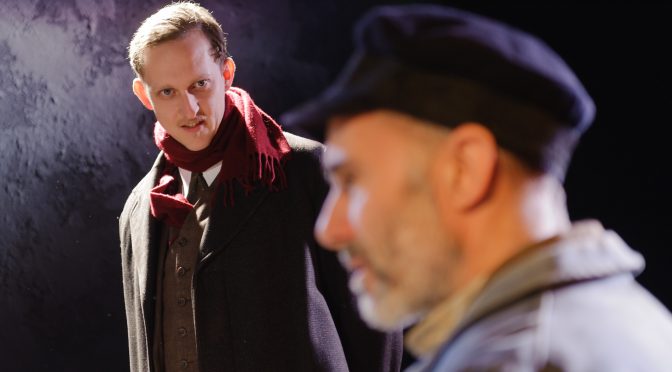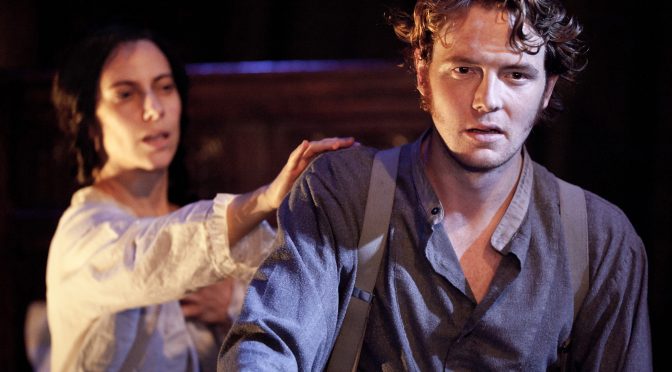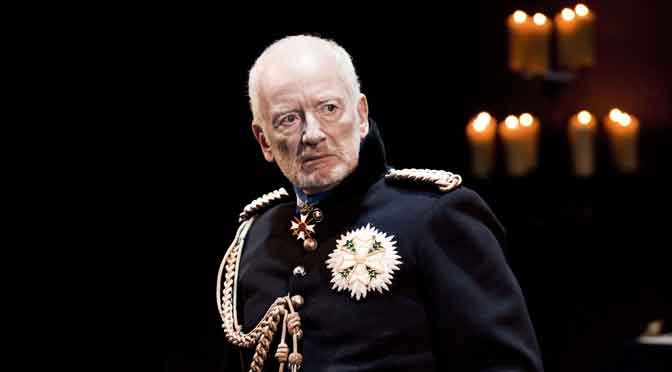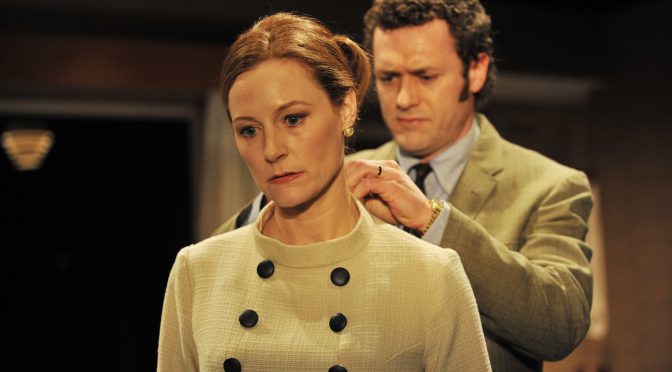As you might expect, there is a kitchen sink in Arnold Wesker’s 1958 work Roots. But, for all the washing up, the play really revolves around cooking. It starts with some liver, followed by ice cream, as Beatie comes home to her Norfolk village for a holiday. Jessica Raine instantly establishes Beatie – and her own acting skills – as something exceptional. Inspired by the socialist ideals she has been exposed to from her activist fiance Ronnie, she’s a “whirlwind” to her family. Insisting that they start to think and talk like her, she is a harsh, albeit endearing judge.
Next Beatie makes a cake. It’s Ronnie’s recipe. Her formidable mother is busy cooking something else while being lectured to and made to listen to classical music. The preparations are for Ronnie’s visit, an encounter that Beatie is justifiably anxious about. Linda Bassett shines in the role of Mrs Bryant, bringing much humour to the play and almost threatening to make the focus two women rather one (probably not Wesker’s intention), so fine is her performance.
By the final scene, there has been more food (and a bath in between), including a family feast with a trifle to take seriously, and all are assembled for Ronnie’s arrival. There’s a sense we have over indulged. Director James Macdonald’s production is meticulous and, with the help of designer Hildegard Bechtler, the detail approaches fetishism. The observation of rural working-class life is slow but captivating, and concentrated performances from the large ensemble that make up Beatie’s family are similarly precise and of the highest quality.
As well as being slightly bloated, Wesker’s examination of socialist ideas is a little past its sell-by date. Thankfully, there is also Beatie’s journey of self-discovery, and this is all together more satisfying. Raine’s depiction of Beatie’s development is thorough and gratifying, giving her the passion for life that Wesker writes so well about. As she gets down from Ronnie’s soapbox, admittedly on to one of her own, you start to really listen to her, and one leaves feeling that the end is her delicious new beginning.
Until 30 November 2013
Photo by Stephen Cummiskey
Written 10 October 2013 for The London Magazine

